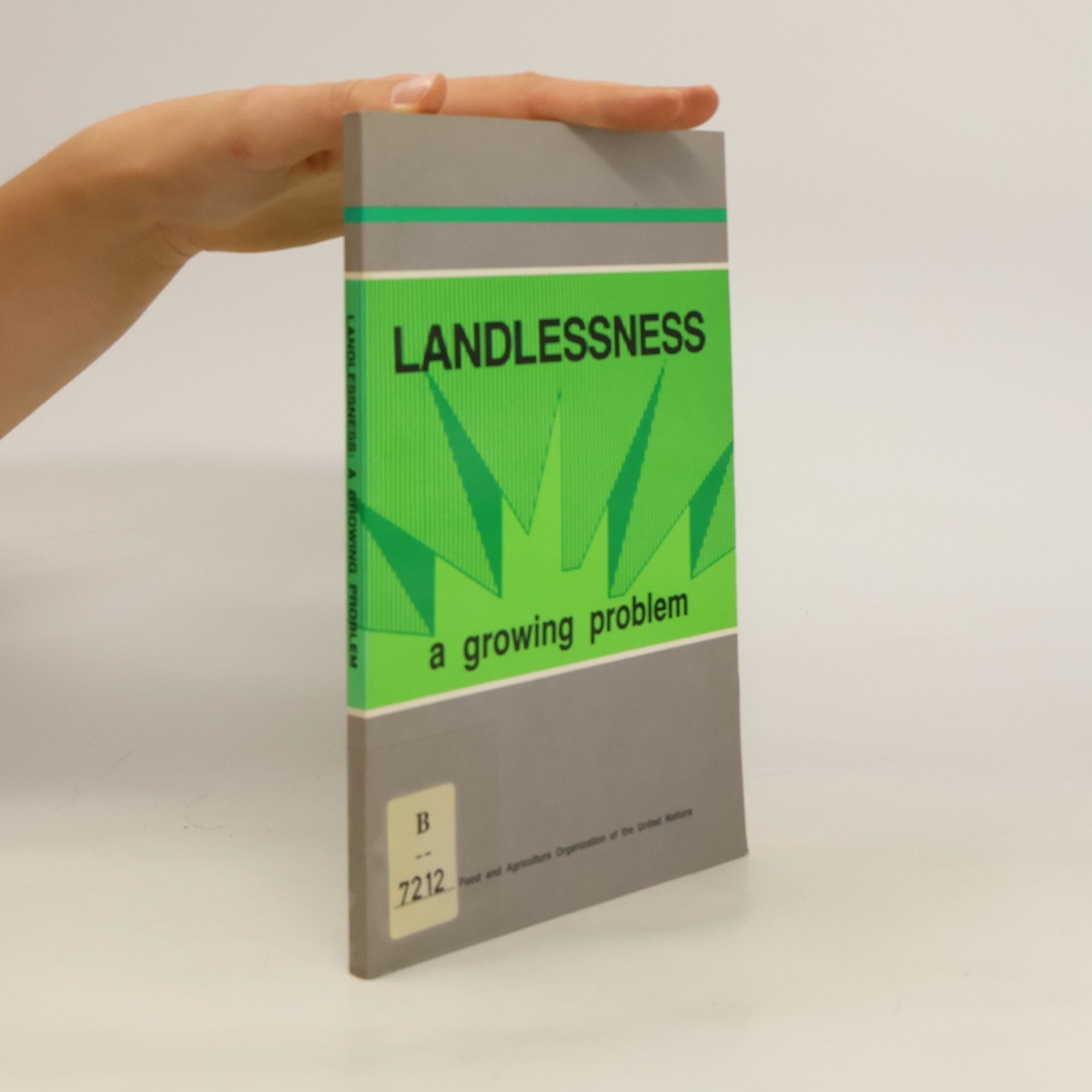Landlessness
- 118 Seiten
- 5 Lesestunden
Major characteristics and causes of landlessness. Economic and social condition of the landless and other groups. Measures to tackle the problem of landlessness. Research priorities and action programmes.

Major characteristics and causes of landlessness. Economic and social condition of the landless and other groups. Measures to tackle the problem of landlessness. Research priorities and action programmes.